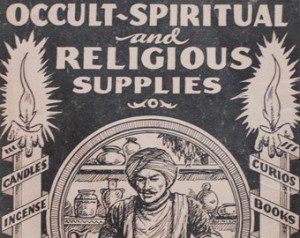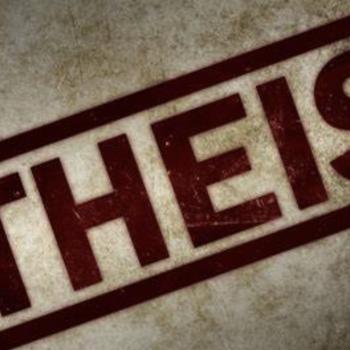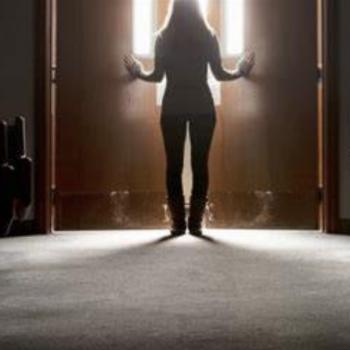“When I say the first line of the Lord’s Prayer: ‘Our Father, who art in heaven…’ I imagine this heaven as invisible, unenterable but intimately close. There is nothing baroque about it, no swirling infinite space or stunning foreshortening. To find it–if one had the grace–it would only be necessary to lift up something as small and as at hand as a pebble or a salt-cellar on the table.” — John Berger, “Steps Towards a Small Theory of the Visible.”

Sometimes I think I’m only Catholic because the Catholic Church is the only stable home I’ve ever known, the one thread of continuity that I can follow back to childhood, and then backwards thousands of years more, unbroken. That thread connects me historically but also supernaturally to everyone from my dead mother to Caryll Houselander to St. Catherine of Siena to Mary Magdalene. The supernatural part is especially appealing to me–I love the idea that “love can reach into the afterlife,” as Benedict XVI wrote in Spe Salvi, “that reciprocal giving and receiving is possible, in which our affection for one another continues beyond the limits of death…” The summit of that relationship, that giving and receiving, is the Eucharist, which in the Catholic Church is believed to be the real presence of Jesus, and thus of every single soul that rests in him. When we take communion, we are truly taking communion. I think that must be the real reason I keep at this, despite finding, almost daily, plenty to be embarrassed and frustrated by in the church. So many of the people I love most are otherwise merely ghosts. As much as I love ghost stories, I don’t really believe them.
That’s because–other than taking communion or listening to her Fleetwood Mac records–I’ve never made contact with my mother’s soul. Sometimes I think this is proof there’s no afterlife. If haunting was possible, wouldn’t my mother haunt me? It seems like something she would’ve enjoyed. And it hasn’t been for my lack of trying, either.
I’ve been attracted to the paranormal since childhood, even before she died. Between my sister and me we’ve done it all (and confessed it too, don’t worry)–ouija boards, seances, tarot cards, automatic writing, mirror divination, past life readings, crystals, herbs, reiki. I’ve done everything from chanting Bloody Mary in the bathroom mirror to celebrating Beltane. But the truth is, the only real magic I’ve ever felt has been within the walls and traditions of the Catholic Church.
It’s an ongoing discovery. Just this last summer solstice, feeling bored and restless, knowing there was a rare solstice full moon, I thought there must be some magic to be had somewhere else, and I sought out some pagans to dance around a fire with. But the pagans were boring too. As we chanted that “world is turning, turning” song and walked around the fire pit, I thought, we can sing to the earth all day and the earth will not sing back, at least not to me. I’d felt the same thing earlier that week in my garden, when I tried to be as quiet as I could and listen to the roots. Yeah, I know. I take medication, don’t worry. Maybe that’s why I didn’t hear anything.
A few days later, on the Nativity of John the Baptist, I celebrated summer the way some older Catholic cultures used to, by praying to and with the forerunner whose birth predicted the birth of the one who answered all our pre-Christian songs. The feast of John the Baptist is celebrated six months before Christmas, and both feasts capture the old pagan love and longing and reverence for light in a poetic way that makes all the sense in the world to me after living in the darkness of Northern Michigan winters for three years. “Pre-Christian paganism is a love poem to a God who remained hidden, or it was an attempt to gain the favour of the divine powers whose presence man felt about him,” wrote Sigrid Undset, a Catholic writer who wrote masterfully about the appealing mashup of Paganism and Christianity in the Norse cultures. Undset claimed that neo-paganism was a rejection of the God who had declared himself, manifested on the earth in Christ. Catholicism recognizes all pre-Christian longing as longing for Christ, all pre-Christian wisdom as an intuition of the truth of salvation history. In other words, you have your answer. Stop looking elsewhere.
And yet I can’t seem to stop. You know. Just in case.
Still, I’ve found that neo-paganism, at least as I’ve been able to find it in my narrow corner of America, simply has no teeth when compared to Catholicism. Why? Too many reasons to name. Among them: Catholicism is an embodied faith and has all the earthiness of paganism without the woo-woo airiness; we have the sacraments, which recognize the holiness and power of humble elements to communicate grace, but we also have the incarnation and the corpus on the cross that keeps us grounded in our humanity and yet asks us to die to self and live for others.
But it’s more than that. It’s the more embarrassing parts too, the hard parts–the restraint and ritual and the endless rules of Catholicism–the ancient things about the Christian faith that aren’t sexy or cool but seem to us straight up backwards that make me think the church has something I can’t get anywhere else, that at the core of all this is something really real. Otherwise, what are we protecting? And yet, who are we to erect barriers between humans and God?
Sometimes the arcana of Catholicism makes me angry and tempts me to walk away. I’ve been Catholic from birth and I’ve written about Catholicism professionally for 15 years and there’s still so much stuff that I don’t know, will never know. So much that it’s embarrassing. I find myself thinking, it really can’t be this complicated, can it? I go back to sweet Brother Lawrence sweeping his floors in prayer, and I go back to the John Berger quote at the top of this essay– if God is to be found there will be nothing baroque about it. He’ll be hidden in plain view.
But I find it hard to believe that we’ve simply erected an endlessly complicated network to protect male patriarchy, as Dan Brown imagined. It seems more likely that we’ve done it to protect something ancient and precious, and that the patriarchy were, in all our previous days, those who were in a position to do the protecting. Do I think that has changed or should change? Yes, I do. But that doesn’t disturb my belief in a mystical truth – the church’s reason for being, worth dying for, worth protecting and handing down for centuries. And maybe some of the walls we’ve erected are just that–walls, meaningless human traditions and rules. Or maybe this is the road map to the enchantment we’re hungering for.
I’m not going to get to the bottom of any of this today, and really, this is all a very complicated introduction to a post about a podcast. When I started listening to Tanis Podcast–a fictional serial about the search for a mysterious and powerful and possibly nonexistent paranormal place–while driving cross country last week, I was struck by how if I replaced the word “Tanis” with “church,” the show articulated many of my reasons for being Catholic. It’s about the desire for mystery.
Nic Silver is a fictional journalist researching a fictional mystery, but the writers fold in just enough references to historical figures like Aleister Crowley, Jack Parsons and even Elliot Smith (and Tanis itself is based on a real place you might remember from Indiana Jones) to make you wonder where the facts end and the fiction begins. But Meerkatnip, the foul-mouthed, eternally bored, easily irritated hacker Nic enlists to help him uncover information on the Deep Web and the Dark Web–those shady corners of the internet where most of us will never go–is the real hero of Tanis. Mostly because she’s the best actress on the show. Also because her character continually exposes our frustration that despite all our access to information, the pattern-making that connects these stray bits of code still depends (for now) upon human intelligence, and the “truth” is constantly compromised by human error and human imagination, and no matter how much detail we excavate, the animating force at the heart of mystery remains unknowable. “Not my department,” she says, and ends the Skype call.
Frustrating, for sure, but that’s what Nic wants, really. He wants to be frustrated. He wants to find something more powerful than his intellect. His hope is that he’s found the last vestige of mystery in our world, and he wants it to remain mysterious, a question he can’t answer via the internet. “Now you can Google anything,” he says in one episode, explaining his attraction to Tanis. “You Google it and know absolutely everything there is to know – whether it’s where Paul Auster is from or the name of the fourth Jaws movie. There is nothing that feels unknowable any more. So the Tanis myth became a way to explore the question of something that is unknowable.” Nick isn’t just an obscurantist. He senses that the way to explore what is unknowable is with experience, not knowledge. Nic has to enter Tanis to even begin to understand.
There’s so many more corny parallels I could make between Tanis and Church: you need a “runner” to take you to Tanis; you need a “sponsor” to become Catholic. But one of the most interesting ideas is that if you stumble upon Tanis without a guide, it’s toxic. It can make you dangerous, insane. Oh and the guide might betray you too. Or get lost. Sounds like much of Christian history to me.
Nic Silver can’t shake the feeling that if he could just find a few errant pieces of the puzzle, the picture it revealed would expose the connections between everything from the legend of the Baba Yaga to the lost city of Atlantis to Kurt Cobain’s suicide. But part of Tanis’s appeal is that those few pieces remain maddeningly lost, invisible, incomprehensible, or maybe, nonexistent. It could all be a conspiracy. It could all be a ruse. It could all be a coincidence. Maybe we’re only deluding ourselves when we see connections between this that and the other. Or are we making things infinitely more complicated than they really are, when the answer is in front of us, hidden in plain sight, right under the salt shaker?
Unfortunately Tanis, like its sister series, The Black Tapes, starts to fall apart after about the first ten episodes. It starts to feel like the wild goose chase it is, with no end in sight, no order, no real template or plan for the story. Because it’s not, you know, real. The plot keeps getting more convoluted and outrageous. It’s also worth noting that the writers seem willing to entertain demonic influence on the supernatural but not a prevailing counterforce, which bores me. Satanism is a cheap and easy trope in paranormal fiction, but any reference to Christ is either unconsciously made or avoided or perhaps not even considered. We seem much more willing to accept the existence of the devil than Jesus.
This same ground–the desire for enchantment among the bored and cynical information generation–gets covered in Stranger Things much more expertly. When the kids find the other world, it’s easy–it might as well be under the saltshaker; it’s just on the other side of the board. And yet nobody gets there without faith, courage, some arcane knowledge, and a willingness to look a little bit nuts.
















